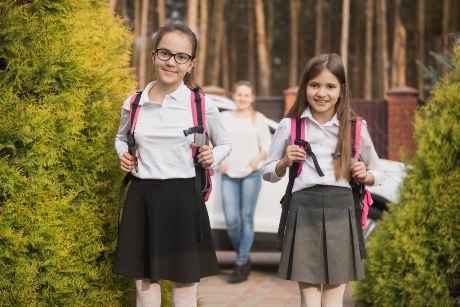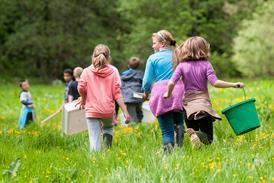Getting parents on board can be most of the battle with school trips. STO hears from three teachers who share advice on how to overcome parents’ concerns.

When planning a school trip, one of the first things teachers ask themselves is “how will I get the parents on board?”. Of course some concerns are understandable but they can often mean that students miss out on valuable and sometimes, life-changing, experiences.
According to a guide titled Health and Safety of Pupils on Educational Visits published by the Department of Education and Employment: “Parents need to be aware that the teachers and
Organisation keeps you in check
Nic Williams, director of business and community and teacher at Blue Bell Hill Primary School in Nottingham, said that unfortunately not all of the pupils in the year group were able to attend a recent trip to London due to parent concerns over safety.
Nic spoke to STO about how the school deals with these situations:
“Over the years we have encountered a number of challenges linked to visits including a terrorist attack in London and a fatality at a theme park both a week before we were due to go.
“As you can imagine a number of concerns arose from both parents and carers, but by showing them the process we use to risk assess, ensuring the safety of the children, we generally had a positive response from them. Both trips went ahead.”
The school uses an online programme through the Local Authority called Evolve which allows teachers to complete a form including full details of the trip to ensure all bases are covered from risk assessments to emergency details and stores the information.
“We reassure our parents and carers by informing them about the Evolve process when we admit their child into the school, they also sign at this point to allow us to take the child on local visits without getting signed authorisation for each visit.”
Besides filling parents in on the essential information, Nic says: “It’s really important that we share the reasons behind our decision to go on the visit and what the children will be learning while they are there.”

Creating school travel culture
Joy Stanford, teacher at Mary Elton Primary School told School Travel Organiser that the first hurdle to overcome when planning a school trip is dealing with pre-conceived ideas.
She said: “News reports over the years that have focused on the small but nevertheless tragic cases where something has gone wrong, the current climate of terror threats and even a parent’s own experiences of school trips as a child can all make for quite justifiable anxiety when a school trip letter reaches home.”
Nevertheless, Joy says that there are ways in which teachers can work towards reassuring parents that school trips are worthwhile and valuable to a child’s education and development.
“Perhaps the key to success is to create a culture in your school where ‘going on a trip’ is just seen as another part of the enriching curriculum your school already offers; part of the normal rhythm of school life which is built in from Reception onwards.”
Besides school trip letters, Joy explains that her school, Mary Elton, holds meetings in July for parents, to fill them in on the school travel plans for the year ahead, and to outline all the details. For longer travel and residentials, Joy admits that face to face communication should be essential.
“After all, parents are entrusting their child to us whilst they are away and at the very least, need to see the people who are in this position of responsibility especially as it is likely to include other staff members who they may not be so familiar with.”
Communication is key
Ian Wood, educational visits coordinator and teacher at Kirk Ella Primary School, told STO that concerns can have a knock-on effect.
He said: “For me, parents’ and teachers’ unspoken worries over safety were suddenly thrust into the spotlight three years ago when, tragically, a former pupil who had left our school just a year previously to go to our local Secondary school died in a freak accident on a school trip.
Within hours of the event, worried parents were planning to pull their children out of forthcoming visits at all of the local schools, says Ian.
These apprehensions, however, highlighted that more needed to be done to reassure parents that this is not a normality.
Good communication with parents is vital; Ian suggests that by making yourself available before and after school on the playground, it will enable you to speak to individual parents and explain to them exactly what you do on visits, an action that worked well for Ian.
“I could discuss with them how we kept their children safe, what would happen if little Johnny got separated, what would happen if little Daisy got homesick, how we would make sure that little Will didn’t come into contact with nuts as he was allergic.
“Some of the concerns were a real eye-opener and the majority of them came down to one thing: ‘Do you care about my child? Prove it!’”
Ian explained that you can never plan for every eventuality, but good communication and confidence helps them see the benefits of a trip.
“Managing risk is a part of life – but the words of a very wise Educational Visits Consultant at the start of my career have always stayed with me: ‘If the benefits outweigh the risk, it’s worth doing!’”






